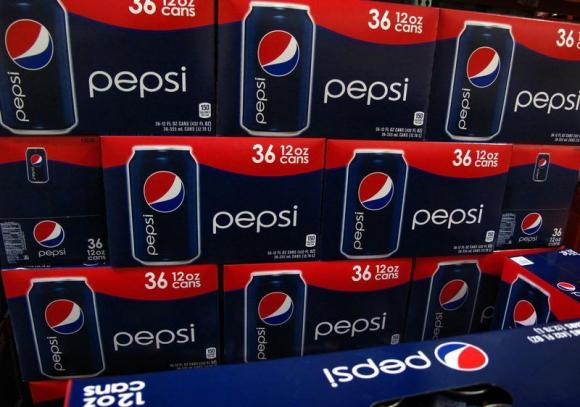 g a proposal by activist investor Nelson Peltz, said it had decided not to spin off its North-American beverage business, which posted another drop in sales in the fourth quarter.
g a proposal by activist investor Nelson Peltz, said it had decided not to spin off its North-American beverage business, which posted another drop in sales in the fourth quarter.PepsiCo shares fell about 3.5 percent in early trading on Thursday even though strong snack food sales helped the company report a better-than-expected 5 percent rise in profit.
Soda sales have been declining in North America as health-conscious consumers reach for non-carbonated beverages such as juices and health drinks.
Peltz has been urging the company to spin off the business and focus on its billion-dollar snack brands Lays, Cheetos and Doritos.
"Decoupling our beverage and snack businesses in North America would significantly reduce our relevance to our customers," Chief Executive Indra Nooyi said.
"Within most of our largest grocery channel customers, we will fall from being the top supplier to a top four or below supplier, and the mass merchant drug channels, we would drop below the Top 10," Nooyi said on a post-earnings call.
The company said its decision not to spin off the business was taken after an exhaustive review that involved external consultants and bankers.
Peltz had also urged PepsiCo to create a snack food giant by acquiring Oreo cookie maker Mondelez International (MDLZ.O), but dropped that push after winning a seat on the Mondelez board last month.
PepsiCo also said on Thursday it would return about $8.7 billion to shareholders through buybacks and dividends in 2014, $2.3 billion more than last year.
The company said it expected to raise its share repurchase program to about $5 billion in 2014, and increased its annual dividend to $2.62 per share from $2.27.
The company said it was on track to save $3 billion through the end of 2014 under a cost-cutting program.
PepsiCo said it would extend the plan, which includes plant closures and increased automation, through 2019. This is expected to save $1 billion annually, the company said.
Chief Financial Officer Hugh Johnston said about 40 percent of the savings would come from job cuts.







